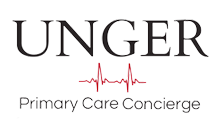What is Concierge Medicine?
Concierge medicine, or private medicine, provides patients with comprehensive, individualized and coordinated care under the direct supervision of a world-class, board-certified physician. Concierge physicians attend to an average of 200 patients, unlike primary care physicians (PCPs), who handle an average of between 2,000 and 4,000 patients. This means concierge doctors can devote more time to patients, seeing seven to ten a day and offering 24-hour availability to each and every one of them. PCPs, by contrast, have to see between 30 and 50 patients a day.
Another benefit of concierge medicine is the range of medical services it reimburses its patients for. Concierge medicine is truly “first class” treatment, providing many amenities that Medicare and standard coverage patients won’t receive. Medicare has a list of 7,500 services for which doctors are reimbursed, but that doesn’t include many services that third-parties or patients expect them to execute. When you go with concierge medicine, you’ll enjoy a first-class menu of amenities. These include, but aren’t limited to, coordination of care with specialists; telemedicine outreach with their doctor; 24/7 communication with the physician via text, email or phone; completion of disability or legal forms at no cost; and management of prior authorization forms to cover medications that may not be approved by one’s insurance plans.
Concierge Practices – a History
In the past five years, over 4,000 concierge practices have opened in the United States. Private medicine is a rapidly growing segment of the medical community. It defines itself as an elite based on the practices and standards it upholds. Concierge physicians must have a long history of commitment within a given geographic location, demonstrated mutual respect and admiration between them and their client base, and a niche practice with an unsurpassed quality of care. There are other outstanding qualifications that concierge practices must have to earn the honor of providing concierge medicine.
Studies on Concierge Medicine
Concierge medicine is also cost-effective. Researchers in the American Journal of Managed Care conducted studies on concierge medicine. They evaluated the cost-benefit of a collective direct primary care group, MD-Value in Prevention (MDVIP), with practices in 43 states and the District of Columbia. They concluded, “for states in which sufficient patient information was available (New York, Florida, Virginia, Arizona and Nevada), decreases in preventable hospital use resulted in $119.4 million in savings in 2010 alone. Almost all of these savings ($109.2 million) came from Medicare patients. On a per capita basis, these savings ($2,551 per patient) were greater than the payment for membership in the medical practices (generally $1,500 to $2,500 per patient, per year).”
The study discovered that concierge medicine scored high on conventional measures as well. “The five-state study also showed positive health outcomes for these patients. In 2010 (the most recent year of the study), these patients experienced 56 percent fewer non-elective admissions, 49 percent fewer avoidable admissions, and 63 percent fewer non-avoidable admissions than patients of traditional practices. Additionally, members of MDVIP “were readmitted 97%, 95%, and 91% less frequently for acute myocardial infarction, congestive heart failure, and pneumonia, respectively.”
This leads to overall better treatment – and to better health and wellbeing. As a British Medical Journal study of the direct primary care group, Qliance, showed, patients experienced “35% fewer hospitalizations, 65% fewer emergency department visits, 66% fewer specialist visits and 82% fewer surgeries than similar populations.”
The Definition of Concierge Medicine
Customized, cost-effective, comprehensive care – that’s the definition of concierge medicine. The facts support this. We embrace it. We hope you will too. Call us today to learn more.
